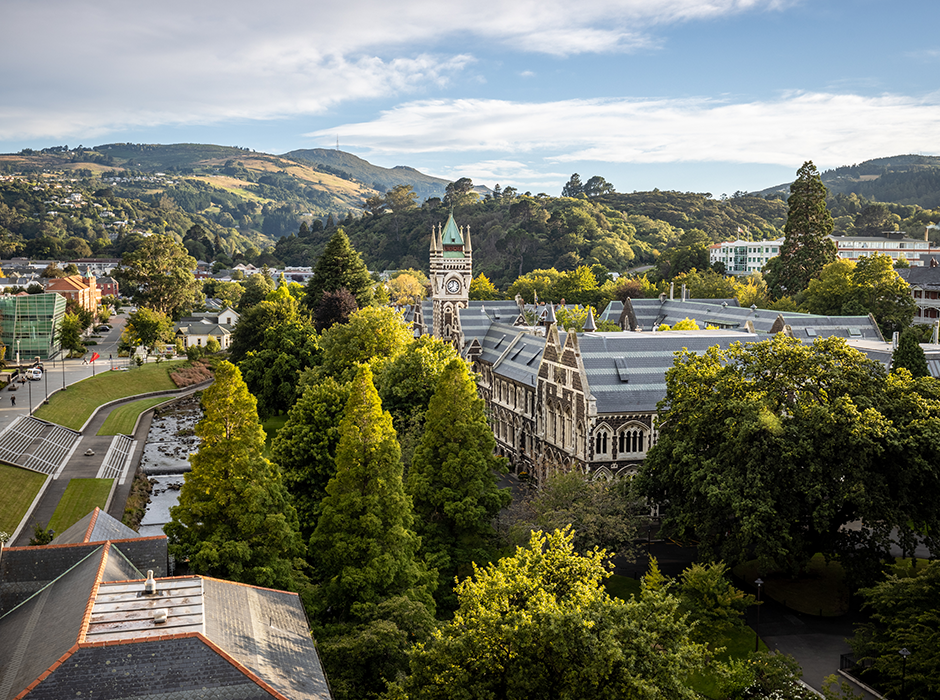
Otago's Statement on Free Speech was developed by a working group of staff and student representatives, following wide consultation.
University Council approved the University of Otago Statement on Free Speech at its meeting yesterday.
The aim was to develop a statement that would give the University community clarity and confidence about freedom of speech and help staff and students engage with one another as a diverse community with diverse ideas.
Vice-Chancellor Grant Robertson says the process to develop the statement has been open, transparent and robust and he thanked Emeritus Professor James Maclaurin and the working party members for their efforts.
“Hundreds of people from across our University community contributed to the development of this statement. It stands as proof of faith in freedom of expression at Otago. We have a strong and proud history of freedom of speech here and the statement reflects this and builds on it.
“This statement provides a clear articulation of the value of free speech that every member of the University community can understand and relate to. Further work will now be required in revisiting and updating policies as a result of this statement. We will get on with this important work now.”
Prior to Council approval yesterday, the proposed statement was adopted by Senate (the principal academic authority of the University made up of staff and students) late last month with no changes.
Emeritus Professor Maclaurin led a working group of staff and student representatives which developed the statement, following wide consultation. Professor Maclaurin gave seminars for staff and students in Dunedin and Wellington, setting out the University’s reasons for wanting to develop a Free Speech Statement and welcoming their input. He also travelled to the northern campuses to meet individually with people.
University of Otago Statement on Free Speech
Free speech is the lifeblood of a university. It enables the exploration of ideas, the challenging of assumptions, and the uncovering of truth through open exchange. It allows students, teachers and researchers to know better the variety of beliefs, theories and opinions in the world. Only through a preparedness to challenge, question, and criticise ideas can progress in understanding take place. Consistent with its motto Sapere Aude, ‘dare to be wise’ and the ikoa Māori Ōtākou Whakaihu Waka, the University of Otago is committed to the fearless pursuit of knowledge driven by māhirahira (curiosity) and bounded by pono (integrity). That commitment requires a wide range of views to be freely presented, discussed and debated.
The University affirms that it will not restrict debate or deliberation simply because the ideas put forth are thought by some to be offensive, unwise, immoral, or wrong-headed. It is for the members of the University community – its students and staff – to make those judgments for themselves. The University is not a place for safety from ideas – it is a place to engage in critical thought and debate in the pursuit of knowledge and understanding. Our students will not be prepared for a complex and challenging world unless they have experience negotiating conflict and disagreement.
The University therefore guarantees all members of its community, including invited visitors, the right to advance ideas in the spirit of free and open enquiry. Furthermore, in its role as critic and conscience of society, the University provides a space in which contrary and unpopular positions can be advanced free from political interference or suppression.
This commitment to free speech does not mean that any utterance is appropriate in a university setting. The University may properly restrict expression which violates the law. Moreover, the University accepts no duty to provide a space for those who are not members of its community to advance their ideas or theories in ways which fundamentally undermine the University’s character as an institute of higher learning. The University may also reasonably regulate the time, place, and manner of expression to ensure that it does not disrupt the ordinary activities of the University.
The University’s support for free speech carries with it corollary responsibilities. Although students, staff, and visitors are free to criticise, contest, and condemn the views expressed on campus, they should not obstruct, disrupt, or otherwise interfere with the freedom of others to express those views.
The University challenges members of its community and invited visitors to be tolerant of the diversity of identities and beliefs of others. We encourage debate in good faith guided by the principles of manaakitaka (care and respect for others).
This statement was ratified on 9 July 2024, to reiterate the University’s solemn and long-standing responsibility not only to promote lively and fearless freedom of debate and deliberation, but also to protect that freedom when others attempt to restrict it. Portions of the statement were adapted from the University of Chicago’s Report of the Committee on Freedom of Expression (January 2015) and the Model Code advanced as part of the Independent Review into Freedom of Speech in Australian Higher Education Providers (April 2019), the University of Oxford’s Statement on Free Speech (August 2016), and the University of Cambridge’s Statement on Free Speech (December 2020).